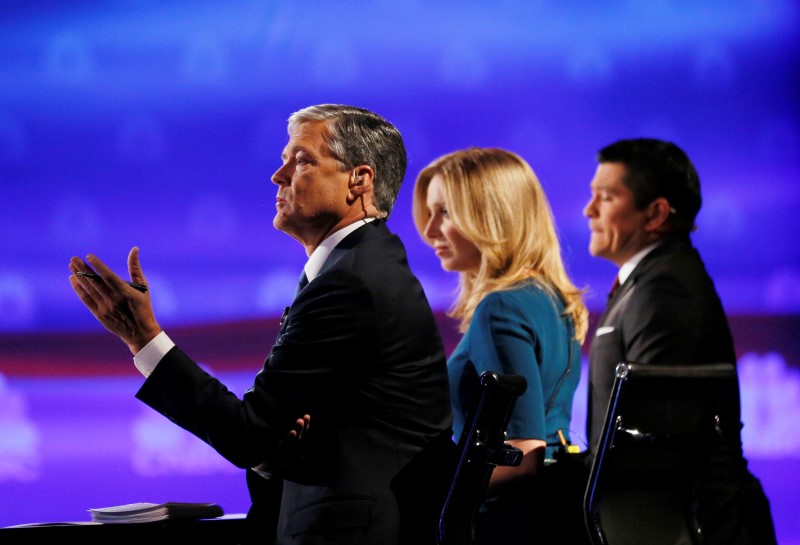By Ginger Gibson and Jessica Toonkel
NEW YORK (Reuters) - Fourteen million viewers tuned in for the Republican Party presidential campaign debate on CNBC on Wednesday night, a record for the network, but criticism of the moderators left CNBC with a mixed victory.
Ratings for the third debate among Republicans seeking their party's nomination to run for the White House in the November 2016 election trailed the other two aired on Fox and CNN, which drew 24 million and 22.9 million viewers.
During and after the debate, some comments on social media and some politicians criticized moderators for being biased with their questions. Candidate Ted Cruz, a conservative U.S. Senator from Texas, said the event showed "why the American people don't trust the media."
CNBC, in a statement announcing the ratings, defended itself against the criticism, describing the evening as "a hard-hitting debate that changed the course of the Republican primary."
Media analyst and entrepreneur Steve Brill said that CNBC's focus on financial news would insulate it to some extent from any backlash.
"I am not sure that it really affects the reputation of the network at the core of what it is, which is a financial news network," Brill said.
CNBC sold all of its advertising slots during the prime time debate, charging advertisers $250,000 or more for a 30-second ad, according to a person familiar with the situation.
"It's a victory, but it's a mixed victory for CNBC," said Barry Lowenthal, president of the The Media Kitchen, a New York-based media buyer.
Questions at Republican primary debates have long been a point of contention within the party. Party chairman Reince Priebus instituted a series of rules after the 2012 election in an attempt to have moderators who would be interested in discussing conservative issues.
On Thursday, Priebus sent an email titled "CNBC should be ashamed of themselves." He asked supporters to sign an online petition to "put the mainstream media on notice" about bias.
The debate was moderated by CNBC's Becky Quick, John Harwood and Carl Quintanilla. The audience booed loudly at them several times - sometimes at the encouragement of the candidates.
"There were a lot of conservatives urging them to go hard after the media and that's what they did," Harwood said. He said moderators were needed to ask the candidates difficult questions about economic policy.
The moderators had little tolerance for candidates trying to interject and respond to another candidate's answer, frequently cutting off anyone who tried to chime in. That, in turn, drew more jeers from the audience and criticism from the candidates.
When former Arkansas Governor Mike Huckabee was asked whether Donald Trump has the "moral authority" to be president, the crowd booed.
"Such a nasty question," Trump said.

Merrill Brown, director of the School of Communications and Media at Montclair State University, said there was reason for CNBC to celebrate because they delivered to advertisers "but there is no bigger win here" and "no one is going to be converted to being a regular watcher."